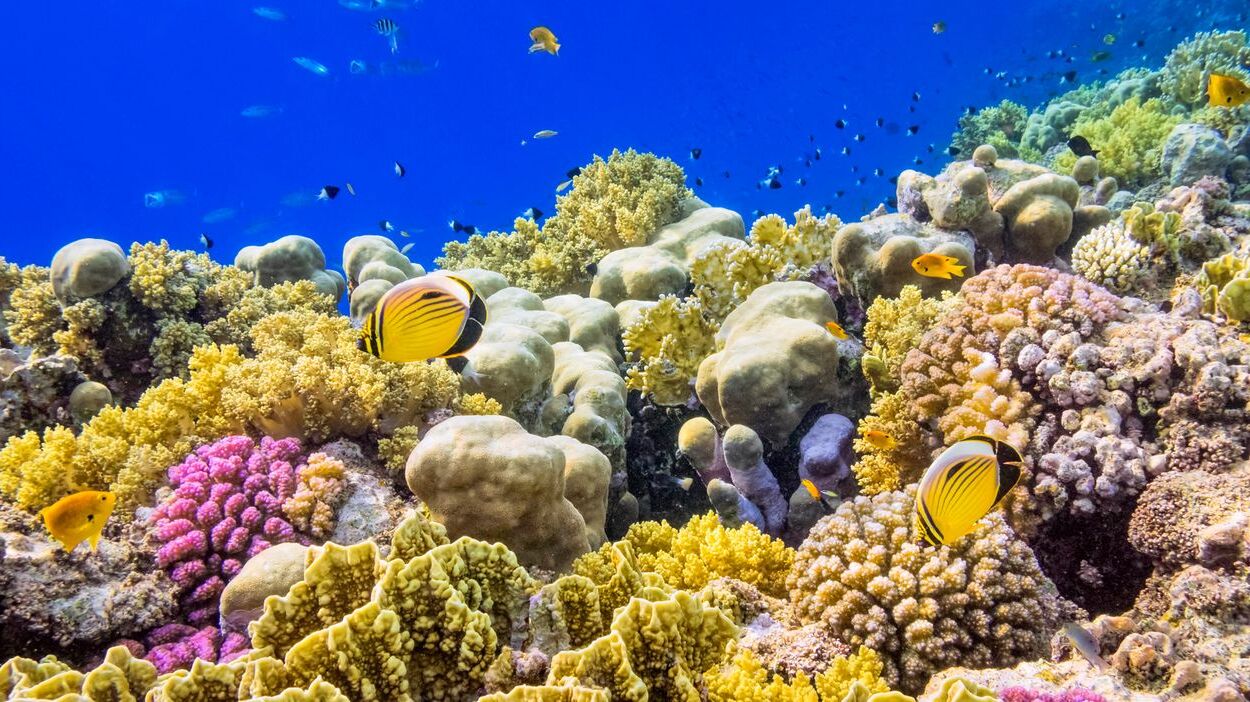
Coral reefs are some of the most vibrant ecosystems on Earth, teeming with life and color. But what makes these underwater marvels so special? Coral reefs support a quarter of all marine species, making them crucial for biodiversity. They act as natural barriers, protecting coastlines from erosion and storm surges. Did you know that coral reefs also contribute to medical research? Compounds found in reef organisms are used in treatments for cancer and other diseases. Sadly, these ecosystems face threats from climate change, pollution, and overfishing. Understanding the importance of coral reefs can help us take steps to protect them. Dive into these 27 fascinating facts to learn more!
What Are Coral Reefs?
Coral reefs are vibrant underwater ecosystems formed by colonies of tiny animals called coral polyps. These structures are not just beautiful but also crucial for marine life.
- Coral reefs cover less than 1% of the ocean floor but support about 25% of all marine species.
- The Great Barrier Reef in Australia is the largest coral reef system in the world, stretching over 1,400 miles.
- Coral reefs are often referred to as the "rainforests of the sea" due to their incredible biodiversity.
- These ecosystems can take thousands of years to form, with some reefs being over 50 million years old.
Importance of Coral Reefs
Coral reefs play a vital role in the health of our oceans and provide numerous benefits to humans and marine life alike.
- Reefs act as natural barriers, protecting coastlines from erosion and storm surges.
- They support commercial and subsistence fisheries, providing food for millions of people.
- Coral reefs contribute to the economy through tourism, attracting divers and snorkelers from around the world.
- Many marine organisms rely on reefs for shelter, breeding grounds, and food sources.
Threats to Coral Reefs
Despite their importance, coral reefs face numerous threats that endanger their survival.
- Climate change is causing ocean temperatures to rise, leading to coral bleaching and death.
- Pollution from agricultural runoff, sewage, and plastic waste harms coral reefs.
- Overfishing disrupts the balance of reef ecosystems, making them more vulnerable to other threats.
- Coastal development and dredging can physically damage reefs and reduce water quality.
Coral Reef Conservation
Efforts are being made globally to protect and restore these precious ecosystems.
- Marine protected areas (MPAs) help safeguard reefs from human activities.
- Coral farming and transplantation are techniques used to restore damaged reefs.
- Reducing carbon emissions can help mitigate the effects of climate change on coral reefs.
- Public awareness campaigns educate people about the importance of reefs and how to protect them.
Interesting Coral Reef Facts
Coral reefs are full of fascinating details that highlight their uniqueness and complexity.
- Some corals can live for over 4,000 years, making them some of the oldest living organisms on Earth.
- Coral polyps have a symbiotic relationship with algae called zooxanthellae, which provide them with energy through photosynthesis.
- The vibrant colors of coral reefs come from the zooxanthellae living within the coral tissues.
- Coral reefs can produce natural compounds that are being researched for potential medical uses, including cancer treatments.
Coral Reef Biodiversity
The biodiversity within coral reefs is astounding, with countless species relying on these ecosystems.
- Over 4,000 species of fish are found in coral reefs, including clownfish, parrotfish, and groupers.
- Reefs are home to a variety of invertebrates, such as sea anemones, sponges, and mollusks.
- Many species of sharks and rays, like the reef shark and manta ray, depend on coral reefs for habitat.
- Coral reefs also support numerous species of crustaceans, including crabs, lobsters, and shrimp.
Human Impact on Coral Reefs
Human activities have both direct and indirect impacts on coral reefs, often leading to their decline.
- Destructive fishing practices, such as blast fishing and cyanide fishing, cause significant damage to reefs.
- Coastal development often leads to increased sedimentation, which can smother coral reefs.
- Recreational activities, like irresponsible snorkeling and diving, can physically damage delicate coral structures.
The Magic of Coral Reefs
Coral reefs are more than just underwater marvels. They support a quarter of all marine life, making them vital to ocean health. These ecosystems protect coastlines from erosion and storms, acting as natural barriers. Reefs also provide food and income for millions of people worldwide through fishing and tourism.
However, coral reefs face threats like climate change, pollution, and overfishing. Rising ocean temperatures cause coral bleaching, weakening these vibrant structures. Pollution from plastics and chemicals further damages their delicate balance.
Protecting coral reefs requires global effort. Simple actions like reducing plastic use, supporting sustainable seafood, and advocating for climate action can make a difference. By understanding and valuing these underwater treasures, we can help ensure their survival for future generations. Coral reefs are not just beautiful; they're essential to our planet's health. Let's work together to preserve them.
Was this page helpful?
Our commitment to delivering trustworthy and engaging content is at the heart of what we do. Each fact on our site is contributed by real users like you, bringing a wealth of diverse insights and information. To ensure the highest standards of accuracy and reliability, our dedicated editors meticulously review each submission. This process guarantees that the facts we share are not only fascinating but also credible. Trust in our commitment to quality and authenticity as you explore and learn with us.


